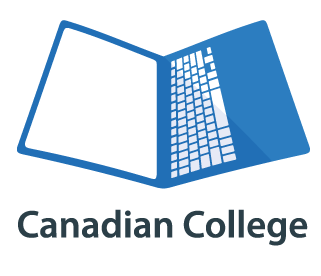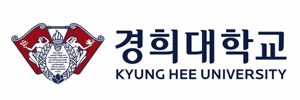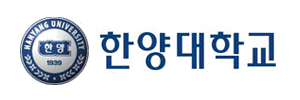■ 과정소개 : 프로젝트 관리 24개월
학생에게 프로젝트 관리 경력을 준비시키기위한 것입니다. 이 프로그램이 끝나면 학생들은 인적 자원 관리, 위험 관리, 예산 및 회계, 마케팅 및 비즈니스 컴퓨터 응용 프로그램을 포함한 프로젝트 관리 작업에 대한 지식을 보여줄 수 있습니다. 또한 프로그램을 모두 마치고 캐나다 로얄로드컬리지의 3학년 과정으로 편입하는 것도 가능합니다.
■ 추천포인트 : 프로젝트 관리 24개월
인턴 후 캐나다 4년제 대학 진학이나 이민을 고려하는 학생 추천
단순 서비스 분야가 아닌 폭넓은 분야에서 인턴 및 취업 가능
장기간 캐나다에 체류하면서 학업과 인턴을 병행하고자 하는 학생 추천
인턴코리아와 함께 국비지원 프로그램을 운영했던 안정된 교육기관
■ 인턴분야 : 프로젝트 관리 24개월
회계, 경영, 경제, 프로젝트 운영, 인사관리, 마케팅, 컴퓨터 활용 등 다양한 분야에 대한 학습을 마치고 인턴이 이루어집니다.


▷ Event Planning
▷ Film Industry
▷ Health Care Industry
▷ Government
▷ IT
▷ Education
▷ Consulting Frims
▷ Retail
■ 알선방법 : 프로젝트 관리 24개월
자체 취업처 리스트를 통하여 구직 정보를 제공하고 있으며, 취업 코디네이터가 별도로 인터뷰 등 구직 활동에 관한 도움을 줍니다. 취업이 힘든 경우 취업 전문 알선 업체를 통하여 $600의 비용을 받고 취업처를 제공합니다.
■ 수업스케쥴 : 프로젝트 관리 24개월
24주 학업 + 24주 인턴쉽 + 12주 학업 + 24주 인턴쉽 + 12주 학업 * 학업 중에도 Part-Time Job 가능
■ 주간스케쥴 : 프로젝트 관리 24개월
아래 스케쥴은 인턴기간이 아닌 학업기간중의 스케쥴입니다.
| 월 | 화 | 수 | 목 | 금 | |
| 오후 3시 - 오후 6시 | 수업 | 수업 | 수업 | ||
| 오후 6시 - 오후 9시 | 수업 | 수업 |
■ 입학조건(영어) : 프로젝트 관리 24개월
1. Canadian College 온라인 시험 및 인터뷰 통과 학생
2. CCEL 조건부 입학 학생
3. TOEFL 70, IELTS 5.5 이상 학생
■ 진행절차 : 프로젝트 관리 24개월
■ 커리큘럼
This is a fundamental course in business mathematics. Topics covered include mathematics of merchandising, simple interest, compound interest, annuities, loan amortization, and cost-volume-profit analysis. This course is designed to encourage students to develop mathematical skills and abilities by applying them to common business situations. Regardless of his or her prior math experiences, this course will enhance the learner's ability to use mathematics to solve problems and make sound decisions from both a career and personal perspective.
This course introduces financial accounting concepts. Students learn the double-entry accounting system, including the preparation of financial statements, closing entries, internal controls for cash and payroll accounting.
This course is a continuation of Accounting 1 and offers further insight into the field of accounting and how it serves the needs of the business community. We take an in-depth look at some specific items on the balance sheet, accounts receivable, inventory, capital assets, and current liabilities as well as the use of special journals, subsidiary ledgers, and end with an introduction to corporations. Applications of the principles learned will be applied to the preparation of financial statements, and in-depth problems, which emphasize the importance of accounting in decision making.
Students learn the challenges of starting a new business. Topics include strategic approaches to small business, small business startups, funding sources, market feasibility, buying a small business and franchising. Students begin to develop skills in financial management, market management, operations, human resource management and general small business management. Preparation of a business plan is a key experiential exercise.
Entrepreneur is a dynamic business simulation covering entrepreneurship, ownership, retailing and the ethical and moral dimensions of management choices. Unlike most classroom exercises, a simulation provides an opportunity for the continuous practice of managing a business organization.
This introductory course emphasizes macroeconomics. Topics include economic principles such as opportunity cost; the law of diminishing returns; market price setting; price elasticity; and government price controls. Students also learn about unemployment, inflation, gross domestic product, money, banking and stabilization policies.
This course introduces the learner to the operations management profession. An operations manager is concerned with the planning, decision-making and actions required to produce and deliver the organization’s goods and/or services, as opposed to marketing its products, managing its human resources or accounting for its finances. Operations managers work in virtually all enterprises R manufacturing, service, government, for-profit and not-for-profit. Operations managers work in many parts of the organization, including Purchasing and Supply Chain, Inventory Management, Quality Management, Scheduling, Transportation and Logistics, and Front-line Supervision to name a few.
This second-level course continues the student’s introduction to the operations management profession and the wide variety of career paths that operations managers can pursue. Participants will continue to develop their awareness of the varied and complex roles that operations managers play in all enterprises R manufacturing, service, government, for-profit and not-for-profit. This course focuses on the analysis and decision-making that operations managers engage in as they strive for efficient, competitive production and delivery of the enterprise’s goods or services. Areas of study include process strategy, capacity planning, design of efficient facilities, and the various levels of planning needed to ensure that an organization can produce and deliver goods and services according to customer demands.
Advances in technology are reshaping interpersonal communications, as well as how we mass communicate, advertise, organize and strategize in business. The knowledge that students are increasingly expected to demonstrate is transforming. 21st century skills include: information and communication technology (ICT) literacy, the ability to think and problem-solve, interpersonal and self-directional skills, global awareness, and financial, economic, business, and civic literacy. On demand video lessons will be available each week for students to view along with weekly small assignments and three major assignments through the course.
This introductory communications course emphasizes the development of reading, writing, listening and speaking business communication skills at a college level. Students write for various purposes and audiences and deliver short presentations to small groups. Students research, analyze, summarize and document information. Students self and peer evaluate written documents and oral presentations. Through reading, media response and discussion exercises, students improve their communication skills. Communicating in diverse teams and across cultures is emphasized.
Designed to provide the student with an overview of the marketing concept and how it can be applied to any type of organization or service. Students also learn how key marketing concepts, principles, and theories can help marketers make effective decisions. Specifically the knowledge and understanding which are needed to assess product, price, promotion and distribution options, and to make marketing mix recommendations for specific target markets.
This course is the first part of an introduction to the computer skills required in business today. It provides the student with an introduction to computer file management and Microsoft Word.
This course will introduce and further develop Microsoft Excel skills that the student will need use in subsequent semesters and in the business world. Upon completion of the course, students will be able to prepare tables and graphs, use input fields, understand and be able to use Microsoft Excel insert functions and specialized functions. These functions include goal seeking, solver and data analysis.
This course deals mainly with the factors that affect the overall workplace atmosphere. Topics include the strategic importance of human resource management, demographic challenges, job analysis and design, human resources planning, recruitment and selection, training and orientation, government and legal challenges, and problem-solving techniques.
This advanced course gives students an appreciation of the technical aspects of human resources. Topics include performance appraisal, compensation management, financial incentives, employee benefits and services, employee relations practices, the union/management framework, and health and safety. Students who successfully complete this course and HUMAN RESOURCE MANAGEMENT I (HRM 1200) with an average B standing receive a full credit toward the Human Resources Administration course from the Human Resources Professionals Association of Ontario.
This second semester course is designed to prepare students for their co-op placement. Students will integrate the diverse skills and accomplishments from the program to develop job targeted CV’s. They will also work with the instructor to develop their understanding of the Canadian Job market and expectations of Canadian HR Managers.
This first 6-month Co-op will provide students the opportunity to apply their initial business skills in real world situations. Students will be assessed and interviewed so that they will be placed in a suitable company according to their interests and future goals. Students will report to the college once a month to update their PLA report as well as problem solve any issues with college staff. The Co-op supervisor will also make routine visits to the place of employment to stay on top of the student`s performance.
This second 6-month Co-op will provide students the opportunity to apply their expanded learned skills in real world situations. Students will have identified potential positions as a result of their CC285-a reports and feedback. Students will continue to report to the college once a month to update their PLA Report as well as problem solve any issues with college staff. The Co-op supervisor will also make routine visits to the place of employment to stay on top of students performance.
This course introduces students to the framework information of project management. The terminology, processes, and knowledge areas of project management are defined to establish a basis upon which participants can develop and grow their project management knowledge, skills and attitudes.
The purpose of this course is to provide guidance on resource cost estimating, budget baselining, and displaying budget information using various tools. Schedule management involves planning and controlling the resources and timelines of a project. Planning the schedule of the project includes estimating and allocating the resources, establishing the order of activities and interdependencies, then applying the activities to a calendar and leveling the resource allocations. This course is designed to help participants plan and manage the schedule of a project using good project management practices.
Project management involves technical skills like scheduling, budgeting, scope definition and quality management, but more importantly, effective management requires the project manager to possess behavioural skills to influence others. It addresses such diverse, but equally important, roles of project leader as visionary, strategic manager and ethical leader. It is a hands-on guide detailing the specific steps you will need to follow in creating a project vision, reaching all project stakeholders and selling that vision.
Project risk management is a critical aspect of successful project management. The process of risk management requires a proactive approach to plan, monitor and control the risks and achieve the objectives of the project successfully. This course provides insight and tools to improve project risk management and increase the probability of project success.
The course is designed to prepare the student for either the CAPM or PMP exam with the goal of helping students pass the exam with a high margin. It focuses not only on a detailed description of why the right answer is right, but why the three wrong answers are wrong.
■ 관련과정
- Trade 12
- $ 7,900 / 12개월
- 학업 6개월
- 인턴 6개월
- 밴쿠버 / 야간
- 학업기간중 파트타임 가능
- 바로가기
- Hospitality 12
- $ 7,900 / 12개월
- 학업 6개월
- 인턴 6개월
- 밴쿠버 / 야간
- 학업기간중 파트타임 가능
- 바로가기
- Business 12
- $ 7,900 / 12개월
- 학업 6개월
- 인턴 6개월
- 밴쿠버 / 야간
- 학업기간중 파트타임 가능
- 바로가기
■ 기관소개 : Canadian College
캐네디언 컬리지는 캐나다의 교육기업 CCEL이 2002년에 설립한 직업전문 교육기관으로 다운타운 중심가에 위치한 200명 규모의 학교입니다. 비즈니스, 무역, 관광서비스는 물론 소셜미디어, IT 프로그램을 운영하는 종합 직업 교육 기관입니다.
▷ Business Management & Coop Diploma 18개월
▷ Business Management Certificate & Coop 12개월
▷ International Trade & Coop Diploma 24개월
▷ Trade Management Certificate & Coop 12개월
▷ Hospitality Management & Coop Diploma 24개월
▷ Hospitality Management Certificate with Coop 12개월
▷ IT Information Technology & Coop Diploma 24개월)
▷ Project Management Coop & Diploma 24개월
▷ Social Media Marketing & Coop Diploma 24개월 24개월
■ 학생후기
■ 위치
주소 : 1050 Alberni St, Vancouver, BC, Canada

























